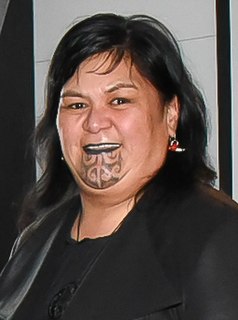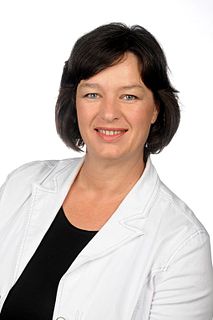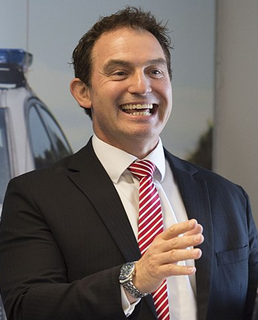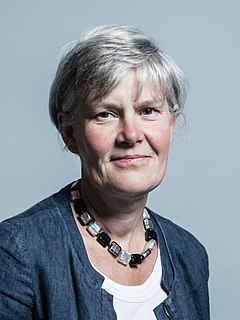
Harriet Ruth Harman is a British solicitor and Labour Party politician who has served as a Member of Parliament since 1982, first for Peckham, and then for its successor constituency of Camberwell and Peckham since 1997. She has served in various Cabinet and Shadow Cabinet positions and, in her role as Deputy Leader of the Labour Party, she has served as the acting Leader of the Labour Party and Leader of the Opposition twice: from May to September 2010 and from May to September 2015.

Stephen Twigg is a British Labour and Co-operative Party politician who has been Member of Parliament (MP) for Liverpool West Derby since 2010. He previously served as the Member of Parliament for Enfield Southgate from 1997 to 2005.

Maria Eagle is a British Labour Party politician, Member of Parliament for Garston and Halewood and former Shadow Secretary of State for Culture, Media and Sport.

Nanaia Cybelle Mahuta is a New Zealand politician who currently serves as the Minister for Māori Development and Minister for Local Government. She was previously a cabinet minister in the Fifth Labour Government of New Zealand, serving then as Minister of Customs, Minister of Local Government, Minister of Youth Development, Associate Minister for the Environment, and Associate Minister of Tourism. She has strong links to the Māori King Movement, being the daughter of Sir Robert Mahuta, who was the adopted son of King Korokī and the elder brother of Māori Queen Te Atairangikaahu. She has an MA (Hons) in social anthropology. In 2016, she acquired a Māori facial tattoo and became the first female MP to wear one in the New Zealand parliament. In 2018, she was listed as one of BBC's 100 Women.

Suzanne Mary Moroney, generally known as Sue Moroney, is a New Zealand politician. She is a member of the New Zealand Labour Party and was a Member of Parliament from 2005 general election until her retirement in 2017.
Unlike the Westminster arrangement where there is an 'Official Opposition' to the government of the day, there is no such thing as an 'official' opposition to the Scottish Government. Instead, all parties that are not in government are merely 'opposition parties'. With the current Scottish Government being Scottish National Party (SNP), the four other main parties are all opposition parties and each will have a Shadow Cabinet composed of Members of the Scottish Parliament (MSPs) with a responsibility to shadow a government minister or area of government.

Grant Murray Robertson is a New Zealand Labour politician who has been the Minister of Finance since 2017 and the Member of Parliament for Wellington Central since 2008.

Stuart Alexander Nash is a politician from New Zealand. He was a list member of the House of Representatives for the Labour Party from 2008 to 2011, and was re-elected in the 2014 election as representative of the Napier electorate. He entered Cabinet in October 2018, with the portfolios of Police, Revenue, Small Business and Fisheries.

Katherine Anne Green is a Labour Party politician who was first elected as the Member of Parliament (MP) for Stretford and Urmston in 2010.

Ed Miliband became Leader of the Labour Party and Leader of the Opposition upon being elected to the former post on 25 September 2010. The election was triggered by Gordon Brown's resignation following the party's fall from power at the 2010 general election, which yielded a Conservative – Liberal Democrat Coalition. Miliband appointed his first Shadow Cabinet in October 2010, following the Labour Party's Shadow Cabinet elections. These elections were the last such elections before they were abolished in 2011.

James Callaghan became Leader of the Opposition on 4 May 1979 after losing the 1979 election and remained in that office until Michael Foot was elected Leader of the Labour Party on 2 October 1980. Callaghan named his Shadow Cabinet in June 1979, with Foot and the 12 elected members of the Shadow Cabinet assigned portfolios on 14 June and further appointments made on 18 June. From the opening of Parliament until that date, Callaghan's Cabinet, with a few exceptions, stayed on to shadow their former positions.

Catherine Malloy Hollern is a British Labour Party politician. She was elected as the Member of Parliament (MP) for Blackburn in 2015. In January 2016, Hollern was appointed Shadow Minister for Reserves, following the reshuffle of the Shadow Cabinet, and resignation of Kevan Jones. Following another Shadow Cabinet reshuffle, she was made Shadow Minister for Local Government.
Jeremy Corbyn assumed the position of Leader of the Opposition after being elected as Leader of the Labour Party on 12 September 2015; the election was triggered by Ed Miliband's resignation following the Labour Party's electoral defeat at the 2015 general election when David Cameron formed a majority Conservative government.










